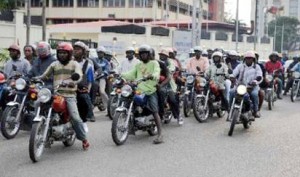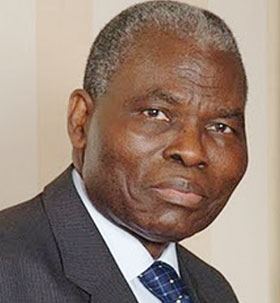Okada Ban: No Pain, No Gain – Fashola
Lagos State Governor Babatunde Fashola has urged residents of the state to endure inconveniences accompanying the implementation of the traffic law, especially the restriction of operators of commercial motorcycles, popularly known as okada.
The governor spoke during the celebration of 2012 Community Day at the Police College, Ikeja on Thursday.
He said the difficulties currently being experienced by commuters in the state were characteristics of the introductory stage of every life-changing policy. He added that the law would be of benefit to residents on the long-run.
Fashola said, “There will be no gain without pain. You should be ready to sacrifice if you want reward.
“We have inconvenienced you in the past because we are constructing roads, or drainages and within a short time, you will begin to drive on the roads and see your environment flood free. This is the way we can work together; sharing responsibility. The idea that everything should be done by the government is not an idea that is good.
“The road traffic law is meant to keep you safe and alive. Okada will not be our transportation model in this state. Our state will not be a dumping ground for motorcycles.
“What we want from residents is some sacrifice. When we were building BRT corridors a few years ago, people complained; but now the BRT has been accepted by everybody.
“We seek understanding and sacrifice on the okada restriction. It is for the safety of lives. It for the state’s development.”
The governor said the state would continue to explore ways to improve its transportation sector and tackle present challenges
He added that the completion of the state’s light rail project would also boost the transport system.
Meanwhile, Fashola has called on lawyers in the state to help poor residents of the state to get access to justice by giving them free services.
The governor, at a public interest law partnership stakeholders’ meeting in Lagos on Thursday, said lawyers could provide the free legal services as a social responsibility and a service to humanity.
He said, “A good number of indigent residents have been denied justice simply because they cannot afford legal services. This situation undermines the principle of equality before the law.”
Fashola explained that the government established the Office of the Public Defender, Citizen Mediation Centre and others, as a response to the huge demand for free legal service. He added that the interventions were inadequate.
“To fill the gap, the state government required the assistance of lawyers in the private sector through the Lagos State Pro Bono service, in delivering such services to the ever increasing population of the state,” he said.
Source: Punch









